Data from Statistics Canada is raising further questions about the Trudeau government’s repeated claims that it has only allowed “non-lethal” military exports to flow to Israel since the state began its brutal war on Gaza last October.
The export data is also renewing calls from peace activists for Canada to impose a two-way embargo on all military trade with Israel, beyond the government’s stated policy of delaying approvals of new export permits.
Export data available for the three-month period between October 2023 and January 2024 shows that Canadian suppliers have shipped goods to Israel under export categories that include “tanks and other armoured fighting vehicles, and parts,” “parts and accessories of military weapons,” and “telescopic sights for fitting to arms; periscopes; telescopes etc.”
In January, $680,312 worth of goods were exported from Ontario to Israel under the “armoured fighting” vehicle category, while $27,715 worth of parts and accessories of “military weapons” were shipped from Quebec.
Between October and December 2023, $769,268 worth of telescopic goods for arms, periscopes and telescopes were shipped to Israel from Ontario.
The data does not specify whether all or some of the items in these categories were specifically intended for military applications.
Kelsey Gallagher, a researcher with the arms-monitoring group Project Ploughshares, told The Maple that Stat Can’s export data categorizes goods under the international “Harmonized System,” which is primarily used to assess trade and calculate the values of custom duties, rather than to specifically track the flow of military goods.
Unlike with Global Affairs Canada’s (GAC) annual reports on exports of military goods, the Stat Can data does not guarantee that the recipients of the goods are always militaries or conventional security forces.
Nonetheless, said Gallagher, “there’s certainly concern when we see values like that, and armoured vehicles being transferred to Israel. Certainly if they were being transferred to Israeli security services.”
“These transfers occurred after the onset of Israel’s operation, so the obvious concern here is that these could be Canadian-made pieces of equipment that could be utilized in Israel’s operation.”
Israel’s war on Gaza has so far killed at least 32,000 people and plunged the besieged enclave into a humanitarian catastrophe.
The International Court of Justice (ICJ) said in January that South Africa’s case accusing Israel of committing a genocide against Palestinians was “plausible,” and the UN Security Council recently voted to call for an immediate ceasefire, with only the United States abstaining.
On Tuesday, the UN Special Rapporteur on the situation of human rights in the Occupied Palestinian Territories presented a report that she said found “reasonable grounds” to believe that Israel’s actions in Gaza had met the threshold of a genocide.
Stat Can’s export data does not reveal the identity of the end user or users in Israel, or precise details about the goods being sold, including the quantity of units.
GAC did not respond to questions from The Maple about the Stat Can export data and its potential implications for Canadian export policies.
Amid a lack of precise information about Canadian military goods being sold to Israel, Foreign Affairs Minister Mélanie Joly and Prime Minister Justin Trudeau have repeatedly claimed that only “non-lethal” goods have been authorized for export since October 7.
“Non-lethal” is a legally meaningless term that arms monitoring groups have repeatedly noted could apply to components of deadly weapons.
The Trudeau government recently claimed that it paused authorizations of new military export permits, including for what it deems to be “non-lethal” goods, on January 8. Suppliers have not yet been formally notified by the government of this alleged change.
The government reaffirmed this existing policy following the passage of a non-binding and significantly watered-down NDP motion in Parliament earlier this month, but said military export permits authorized before January 8 would not be revoked.
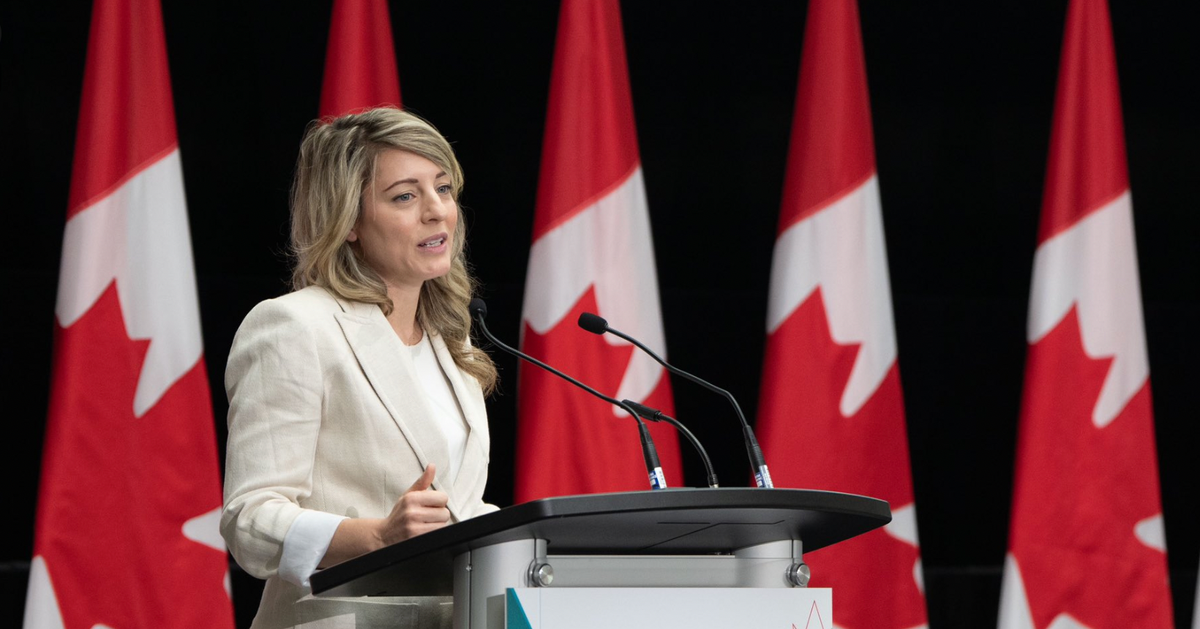
Meanwhile, Radio-Canada reported earlier this month that GAC was deliberately “slow-walking” an application to permit Canadian company Roshel to sell armoured patrol vehicles to Israel.
Roshel told CBC: “It is our understanding that these vehicles are not to be used for military purposes, but solely for domestic police operations.”
The company’s CEO did not respond to a question from The Maple asking which branch of the Israeli government planned to buy the vehicles.
Deceptive Wording
Before adopting the position of stalling approvals of new military export permits, the Trudeau government insisted that it had not received applications for or approved any permits to export “full weapon systems” to Israel.
As activists noted at the time, this careful phrasing did not exclude the possibility that Canada was still allowing suppliers to ship components of deadly weapons.
As revealed by The Maple in February, the Trudeau government authorized at least $28.5 million of new export permits for sales of military goods to Israel between last October and early December.
These permits – which would remain in effect under the government’s current policy – include four worth a combined total of $1.7 million that authorized the sale of goods under an export category that includes “bombs, torpedoes, rockets, missiles, other explosive devices and charges and related equipment and accessories, and specially designed components.”
Permits valued at $859,000 covered items that included “ground vehicles and components.”
For Rachel Small, an organizer with the advocacy group World Beyond War - Canada, Stat Can’s data indicating potential exports of problematic items is yet another sign of why Canada needs to impose a two-way embargo on all military exports to Israel, including those already authorized by GAC.
Any such embargo would also prohibit the Canadian government’s purchasing of Israeli-made weapons, such as the Spike LR2 missile manufactured by Israeli state-owned arms dealer Rafael.

“We join civil society, grassroots movements, Palestinian communities and allies all across the country in demanding a real, full arms embargo that doesn’t just promise to not grant future permits, but actually stops the flow of all weapons to and from Israel,” Small told The Maple.
“If the Canadian government is acknowledging that it’s no longer acceptable to approve military permits to Israel, it’s also no longer acceptable to send weaponry to Israel.”
“After many months of organizing by hundreds of thousands of people across the country, the Canadian government was finally forced to concede that it’s just completely untenable for Canada to maintain that they can legally and morally justify continuing to send weapons to Israel,” she added.
Small further lambasted the government’s invented categories of “lethal” and “non-lethal” military goods. “These were terms they were making up that are not reflected anywhere in Canadian law,” she noted.
Besides direct military trade with Israel, peace activists are also continuing to push for an end to military exports that flow from Canada to Israel via the United States. The federal government does not proactively publish information on the value of Canadian military exports that go to the U.S.
In December, Project Ploughshares published a report warning that some Canadian-made components, including those found in F-35 fighter jets, are first shipped to the U.S. and then ultimately supplied to the Israeli military. Israel has used F-35s in its bombing of Gaza.
Small emphasized that the Trudeau government’s claims that it has paused approvals of future export permits has done little to dampen the momentum of those protesting for a full embargo.
“While people have welcomed the announcement, nobody is fooled into thinking that this has stopped the flow of weapons to and from Israel,” she explained. “People want an actual end to Canada’s complicity in the Israeli military’s violence and that absolutely starts with cutting off the flow of weapons.”
Gallagher echoed that call. “If these transfers [published by Stat Can] are indeed for military end use, I think it highlights the reason why we’ve been calling on the government of Canada to extend the extent of last week’s motion to apply to not only new export permits for military transfers to Israel, but it should also apply to those transfers that have already been approved.”
Contentious Exports
Armoured vehicles have long been the product of choice in some of Canada’s most contentious arms deals.
A $14 billion light-armoured vehicle (LAV) deal between General Dynamics Land Systems - Canada (GDLS) and Saudi Arabia constitutes the biggest arms contract in Canadian history, and one of the most heavily criticized over human rights concerns.
In March 2023, The Maple revealed that the Trudeau government viewed the FIFA 2022 World Cup as an opportunity to lobby on behalf of GDLS for yet another LAV deal, this time with the monarchy of Qatar, which also has a problematic human rights record.
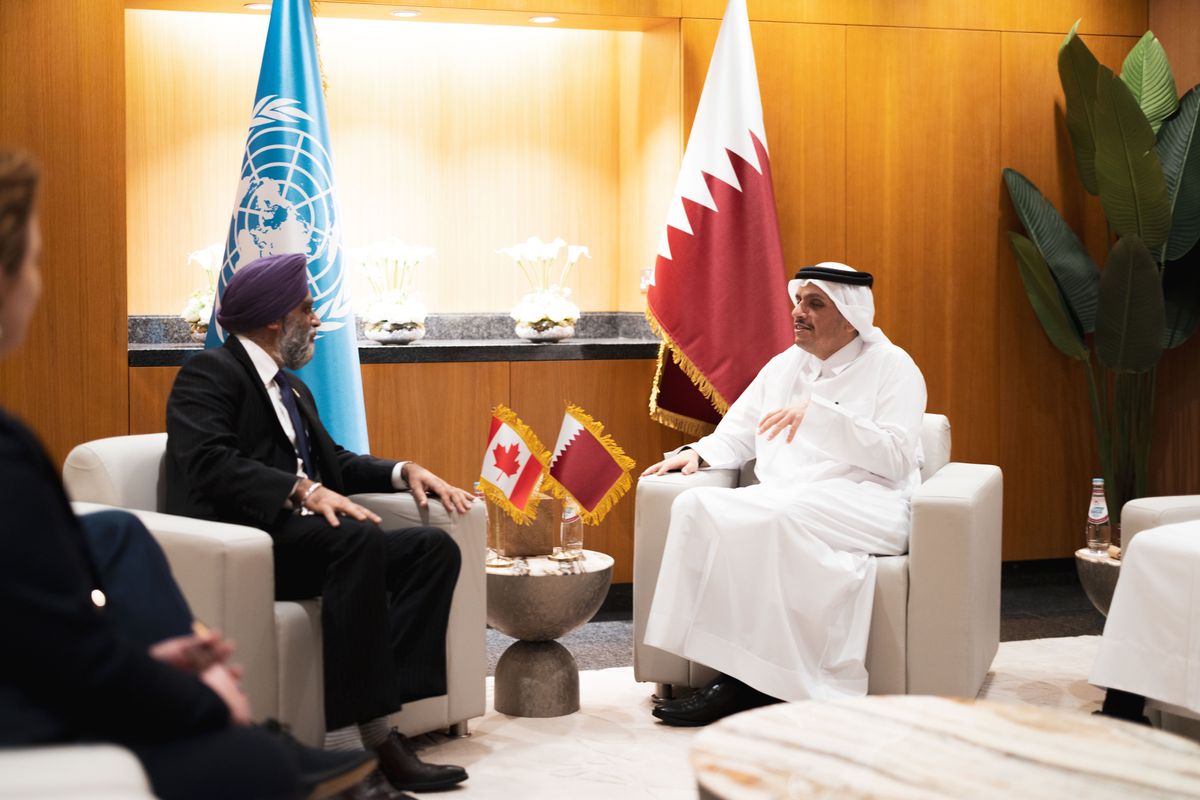
Sales of aerial drones have also been a source of major concern among peace activists, particularly in cases where such items might be bound for Israel.
In the first two months of Israel’s war on Gaza, GAC authorized $9.2 million worth of export permits covering goods under a category that includes “‘Aircraft’, ‘lighter-than-air vehicles’, ‘unmanned aerial vehicles,’ aero-engines and ‘aircraft’ equipment, related equipment, and components.”
This month, disturbing footage broadcast by Al Jazeera showed an Israeli drone launching missiles at unarmed Palestinians walking through an open clearing in Gaza.
GAC ignored multiple questions from The Maple about whether it was reviewing any open export permits that authorized the sale of any goods related to drones or other types of aircraft.
Alex Cosh is the news editor of The Maple.


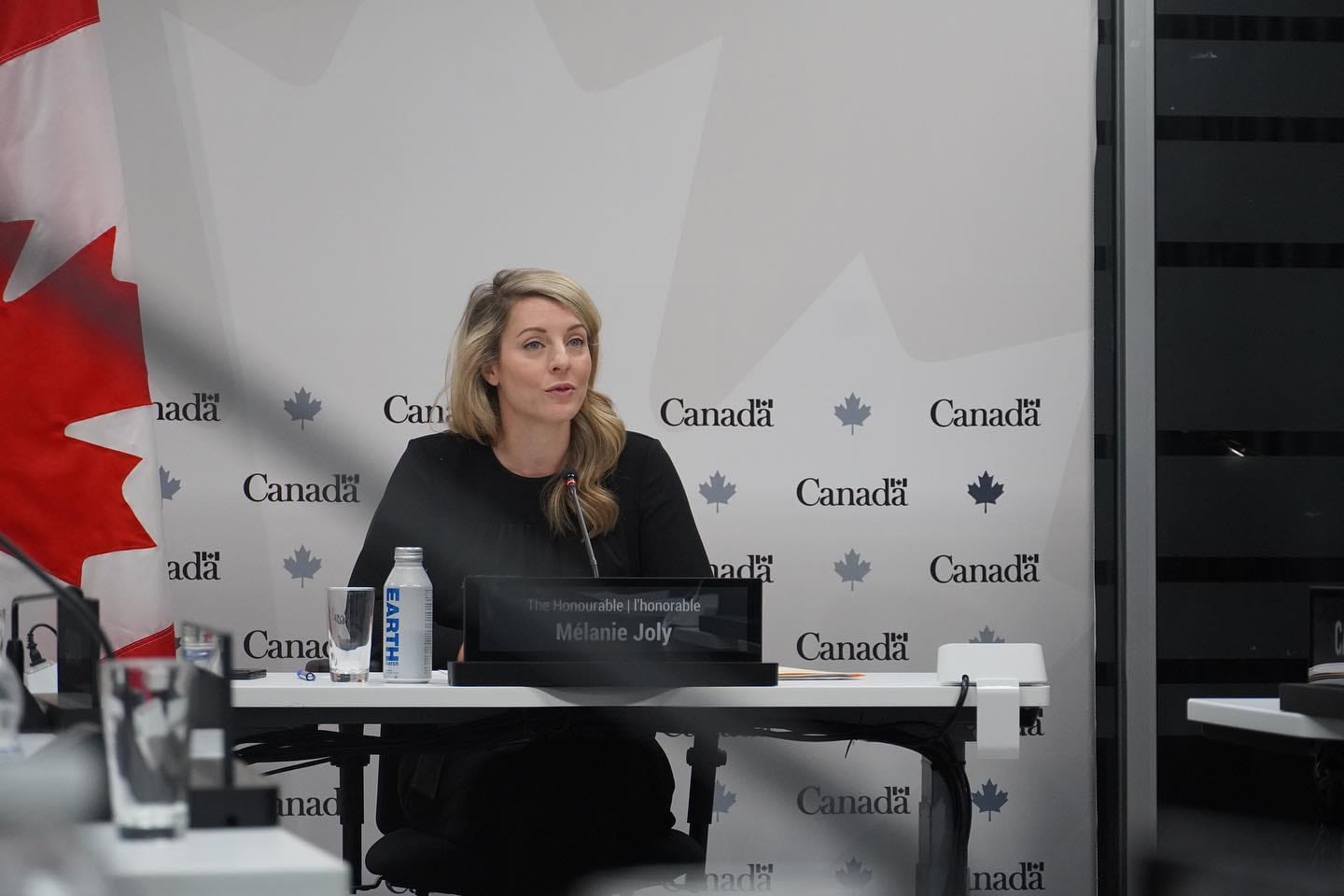

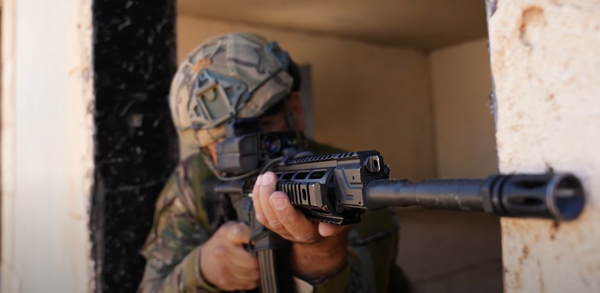
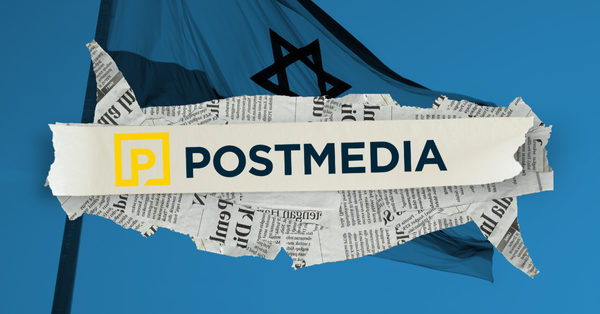
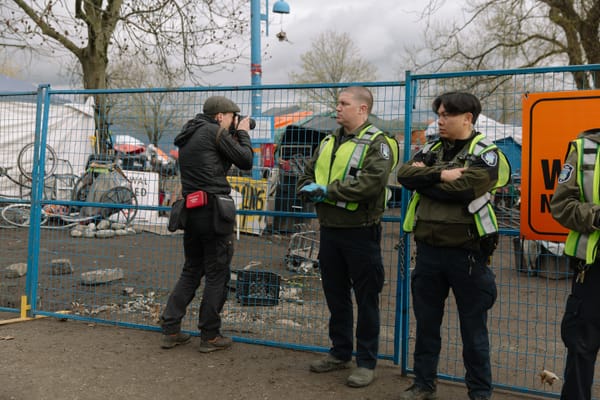
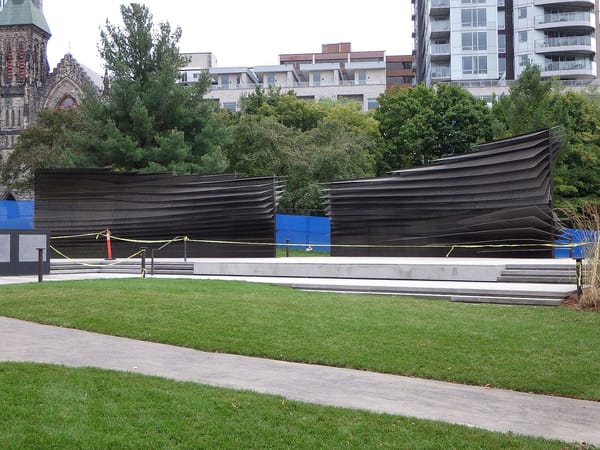

Member discussion